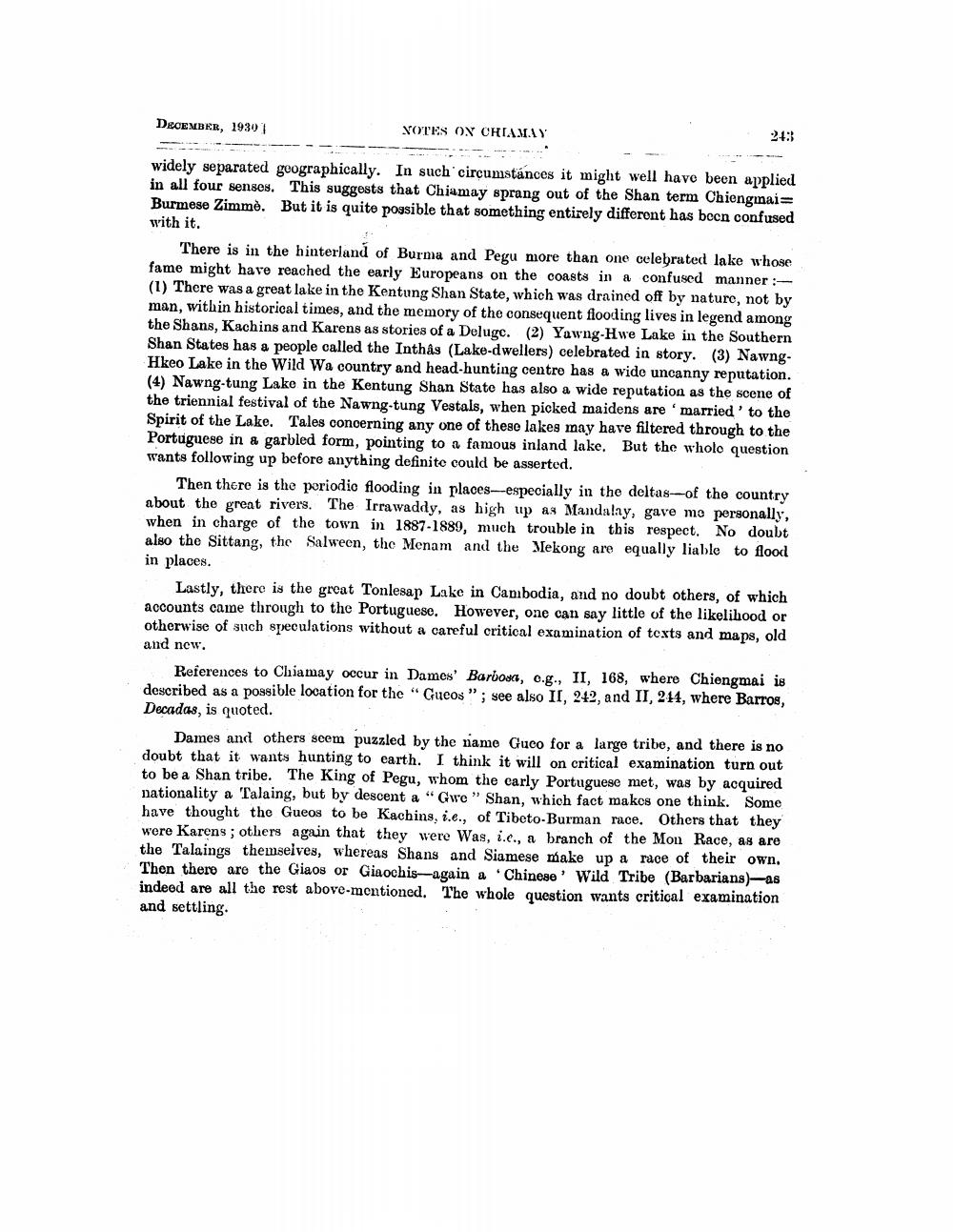________________
DECEMBER, 1930
VOTES ON CHIAMAY
widely separated geographically. In such circumstances it might well have been applied in all four senses. This suggests that Chiamay sprang out of the Shan term Chiengmai= Burmese Zimme. But it is quite possible that something entirely different has been confused with it.
There is in the hinterland of Burma and Pegu more than one celebrated lake whose fame might have reached the early Europeans on the coasts in a confused manner :(1) There was a great lake in the Kentung Shan State, which was drained off by nature, not by man, within historical times, and the memory of the consequent flooding lives in legend among the Shans, Kachins and Karens as stories of a Deluge. (2) Yawng-Hwe Lake in the Southern Shan States has a people called the Inthâs (Lake-dwellers) celebrated in story. (3) NawngHkeo Lake in the Wild Wa country and head-hunting centre has a wido uncanny reputation. (4) Nawng-tung Lake in the Kentung Shan State has also a wide reputation as the scene of the triennial festival of the Nawng-tung Vestals, when picked maidens are 'married to the Spirit of the Lake. Tales conoerning any one of these lakes may have filtered through to the Portuguese in & garbled form, pointing to a famous inland lake. But the wholo question wants following up before anything definite could be asserted.
Then there is the periodio flooding in places-especially in the deltas--of the country about the great rivers. The Irrawaddy, as high up as Mandalay, gave mo personally, when in charge of the town in 1887-1889, much trouble in this respect. No doubt also the Sittang, the Salween, the Menam and the Mekong are equally liable to flood in places.
Lastly, there is the great Tonlesap Lake in Cambodia, and no doubt others, of which accounts came through to the Portuguese. However, one can say little of the likelihood or otherwise of such speculations without a careful critical examination of texts and maps, old and now.
References to Chiamay occur in Dames Barbost, o.g., II, 168, where Chiengmai is described as a possible location for the "Cucos"; see also II, 242, and II, 214, where Barros, Decadas, is quoted.
Dames and others seem puzzled by the name Guco for a large tribe, and there is no doubt that it wants hunting to earth. I think it will on critical examination turn out to be a Shan tribe. The King of Pegu, whom the carly Portuguese met, was by acquired nationality a Talaing, but by descent a "Gwe” Shan, which fact makes one think. Some have thought the Gueos to be Kachins, i.e., of Tibeto-Burman race. Others that they were Karens; others again that they were Was, i.e., a branch of the Mon Race, as are the Talaings themselves, whereas Shans and Siamese make up a race of their own Then there aro the Giaos or Giaochis-again a Chinese' Wild Tribe (Barbarians)-as indeed are all the rest above-mentioned. The whole question wants critical examination and settling




